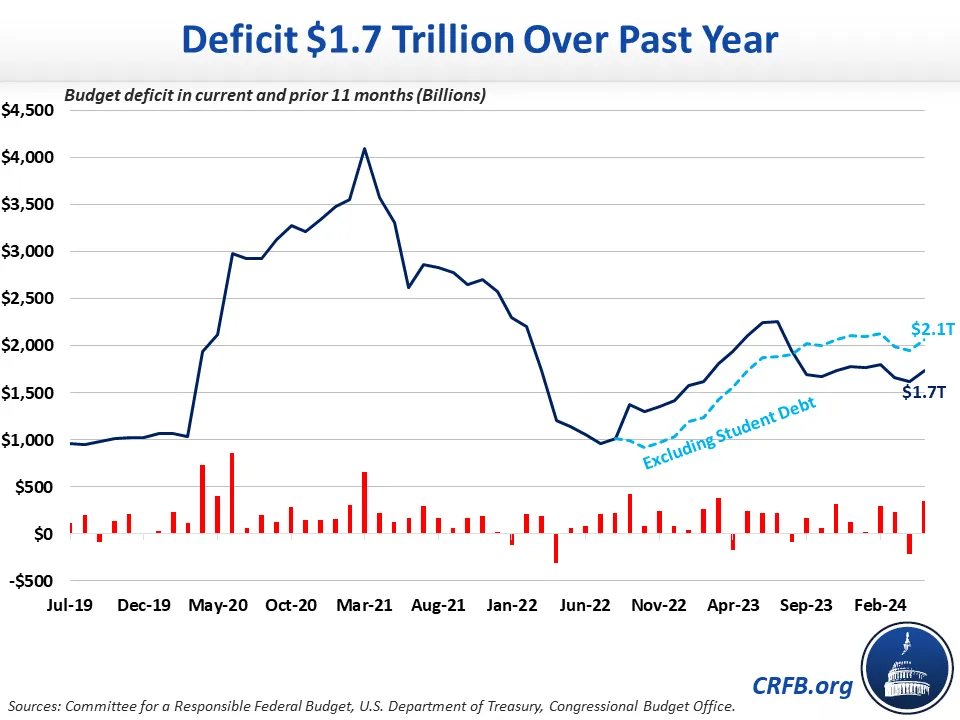Deficit Totaled $1.7 Trillion Over the Past Year
The federal budget deficit totaled $1.7 trillion over the past 12 months, incorporating the $348 billion May deficit estimated by the Congressional Budget Office (CBO) today.
The 12-month rolling deficit from June 2023 to May 2024 is $108 billion higher than the $1.6 trillion from the 12-month prior period, though CBO explains that outlays in May 2024 were higher partially due to timing shifts. Removing the effects of the student loan cancellation, which was ruled illegal last year and appeared as a reduction in outlays in September 2023, the rolling deficit was $2.1 trillion – an increase from April's $2.0 trillion. As a share of the economy, the rolling deficit was approximately 6.2 percent of Gross Domestic Product (GDP), or 7.4 percent of GDP excluding student loan effects.

Compared to the last 12 months, total nominal spending is up 2.0 percent to $6.5 trillion (23.1 percent of GDP). On the other hand, nominal revenue is up 0.4 percent compared to the previous 12 months, to $4.7 trillion (16.9 percent of GDP).
Rising spending and declining revenue has led to our deteriorating fiscal situation. Debt is projected to continue rising from 97 percent of GDP at the end of FY 2023 to a record 106.4 percent of GDP by 2028, steadily increasing to 166 percent of GDP by the end of 2054. Action is needed from lawmakers for both immediate and long-term solutions to our fiscal deterioration. Policymakers should work together to reduce the debt-to-GDP ratio and improve our economic outlook.

